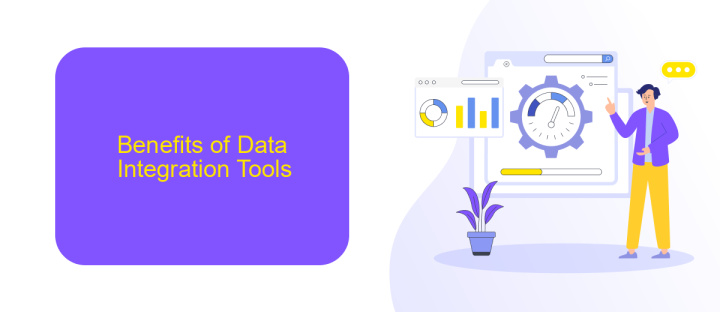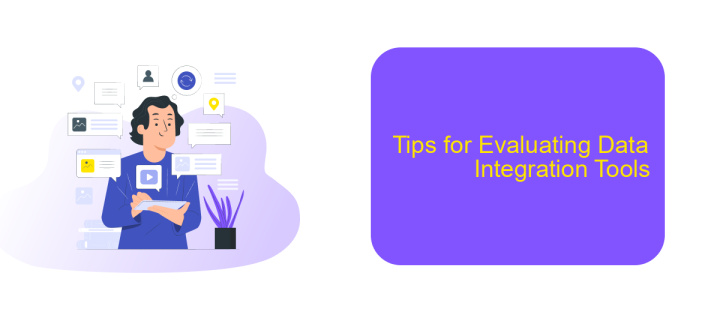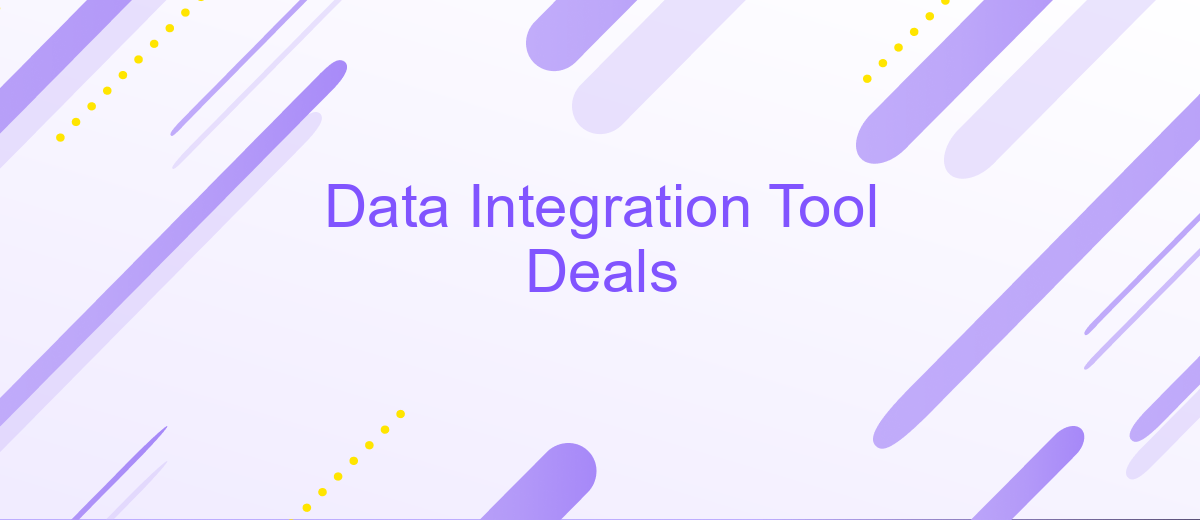Data Integration Tool Deals
In today's data-driven world, efficient data integration is crucial for businesses looking to streamline operations and gain actionable insights. This article explores the best deals on data integration tools currently available, helping you make informed decisions. Whether you're a small startup or a large enterprise, finding the right tool can significantly impact your data management strategy and overall success.
Introduction
Data integration tools have become essential for businesses aiming to streamline their operations and improve data accuracy. These tools help in consolidating data from various sources into a single, unified view, enabling better decision-making and operational efficiency. In today's competitive market, selecting the right data integration tool can make a significant difference.
- Enhanced data accuracy and consistency
- Improved operational efficiency
- Cost-effective data management
- Seamless integration with existing systems
One of the leading solutions in this space is ApiX-Drive, a service that simplifies the process of setting up integrations between different platforms. With ApiX-Drive, businesses can automate data flows without requiring extensive technical knowledge, making it an ideal choice for companies of all sizes. By leveraging such tools, organizations can ensure their data is reliable, up-to-date, and easily accessible, thus driving better business outcomes.
Benefits of Data Integration Tools

Data integration tools offer a multitude of benefits for businesses looking to streamline their operations and enhance data management. By consolidating data from various sources into a single, unified system, these tools enable more accurate and comprehensive data analysis. This leads to better decision-making and improved business outcomes. Additionally, data integration tools reduce the time and effort required to manually gather and reconcile data from disparate systems, thus increasing operational efficiency and allowing employees to focus on more strategic tasks.
Furthermore, data integration tools ensure data consistency and accuracy across different platforms, which is crucial for maintaining data integrity. Services like ApiX-Drive make it easy to set up and manage integrations, providing a user-friendly interface and robust functionality to automate data flows between applications. This not only simplifies the integration process but also reduces the risk of errors associated with manual data handling. Overall, leveraging data integration tools can significantly enhance the quality and accessibility of data, driving better business performance and innovation.
Key Features to Consider

When selecting a data integration tool, it's essential to focus on features that ensure seamless and efficient data management. These key features can significantly impact the performance and usability of the tool.
- Ease of Use: The tool should have an intuitive interface that allows users to set up integrations without extensive technical knowledge.
- Scalability: Ensure the tool can handle increasing volumes of data as your business grows.
- Compatibility: It should support a wide range of data sources and destinations, including popular databases, cloud services, and applications.
- Real-Time Data Sync: The ability to sync data in real-time is crucial for maintaining up-to-date information across systems.
- Security: Robust security features, such as encryption and access controls, are vital to protect sensitive data.
- Automation: Tools like ApiX-Drive offer automated workflows, reducing manual intervention and improving efficiency.
- Support and Documentation: Comprehensive support and detailed documentation can help resolve issues quickly and effectively.
Considering these features will help you choose a data integration tool that meets your specific business needs, ensuring a smooth and efficient integration process. Tools like ApiX-Drive can provide a robust and user-friendly solution for automating and managing your data integrations.
Tips for Evaluating Data Integration Tools

When evaluating data integration tools, it is crucial to consider various factors to ensure you select the right solution for your business needs. Start by identifying your specific integration requirements and the types of data sources you need to connect. This initial step will guide you in narrowing down your options.
Next, assess the ease of use and user interface of the tools you are considering. A user-friendly interface can significantly reduce the time and effort required to set up and manage integrations. Additionally, consider the scalability of the tool to accommodate your future growth and increasing data volumes.
- Compatibility with existing systems and data sources
- Support for real-time data synchronization
- Availability of pre-built connectors
- Security and compliance features
- Customer support and documentation
For instance, services like ApiX-Drive offer a range of pre-built connectors and an intuitive interface, making it easier to set up integrations without extensive technical knowledge. By carefully evaluating these aspects, you can choose a data integration tool that best fits your organization's needs and enhances your data management capabilities.
Comparison of Popular Data Integration Tools
When comparing popular data integration tools, several key players stand out due to their robust features and ease of use. Tools like Talend, Informatica, and Microsoft SQL Server Integration Services (SSIS) are renowned for their comprehensive data integration capabilities, offering extensive support for various data sources and formats. Talend is well-regarded for its open-source nature and flexibility, while Informatica is praised for its high performance and scalability. SSIS, on the other hand, is a favorite among enterprises already utilizing Microsoft's ecosystem due to its seamless integration with other Microsoft products.
Another notable mention is ApiX-Drive, a service designed to simplify the process of setting up integrations. Unlike traditional data integration tools that require significant technical expertise, ApiX-Drive offers a user-friendly interface that allows businesses to connect various applications and automate workflows with minimal effort. This tool is particularly beneficial for small to medium-sized enterprises looking to streamline their operations without investing heavily in IT resources. Overall, the choice of a data integration tool largely depends on the specific needs and technical capabilities of the organization.
FAQ
What is a Data Integration Tool?
Why is data integration important for businesses?
How can I automate data integration processes in my business?
What should I consider when choosing a Data Integration Tool?
Can I integrate data from multiple cloud services and on-premise systems?
Time is the most valuable resource for business today. Almost half of it is wasted on routine tasks. Your employees are constantly forced to perform monotonous tasks that are difficult to classify as important and specialized. You can leave everything as it is by hiring additional employees, or you can automate most of the business processes using the ApiX-Drive online connector to get rid of unnecessary time and money expenses once and for all. The choice is yours!

